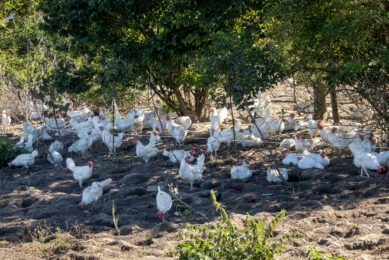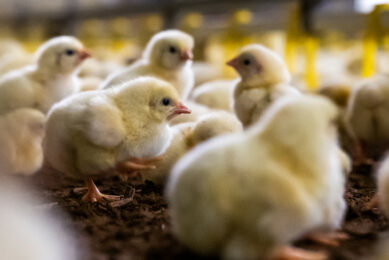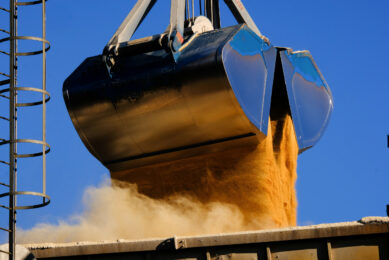Ronozyme ProAct introduced to US market
In 2011, Novozymes and DSM began selling an innovative breakthrough to the US poultry market: Ronozyme ProAct, the first pure protease for use in animal feed.
Protease offers great value to poultry producers by improving the digestion and uptake of protein in broiler chickens. This reduces both feed costs and environmental impact.
US poultry producers are challenged to make more food from less feed, at an affordable price for consumers. “High feeding costs and resource constraints remain the biggest challenges for the US poultry industry,” says Peter Christensen, Global Marketing Manager at Novozymes.
“Poultry producers are looking for sustainable solutions now more than ever to combat these challenges.”
Ronozyme ProAct is a proven solution to the challenges faced by the US poultry industry. It can improve both the economic and environmental sustainability of poultry production.
As the first pure protease enzyme for feed, it complements the bird’s own digestive enzymes, improves protein digestibility and makes more amino acids available to the animal.
This is important because poultry producers currently have to over feed the broilers with up to 4% more protein in order to achieve the desired absorption rate of amino acids for optimum growth.
Adding protease to feed allows the diet to contain less protein and thereby reduces overall feed costs by 3-8%.
Reducing the environmental footprint
The greatest environmental challenge caused by excess protein in chicken feed is the residual nitrogen emissions coming from their manure.
Nitrogen emissions are an environmental hazard for land, water and air. Because protease provides better protein digestibility, their manure will contain less nitrogen, thereby reducing the amount of nitrogen excreted into the environment.
In mid-2011, Novozymes and DSM Nutritional Products completed a lifecycle assessment (LCA) on the environmental benefits of Ronozyme ProAct.
The study was published in The International Journal of Poultry Science in January 2012. The LCA shows that adding protease to feed significantly reduces nitrogen content of the manure.
In the US, there is a potential to reduce nitrogen content of chicken manure between 15,000-30,000 tonnes, corresponding to reduced emissions of ammonia of between 10,000-20,000 tonnes per year.
The potential reduction of greenhouse gases (250,000-500,000 tonnes of CO2), corresponds to taking 100,000-200,000 cars off the road in the US.
As a feed additive, Ronozyme ProAct is unique: It reduces costs, it is heat stable, and it reduces both nitrogen emissions and greenhouse gases.











